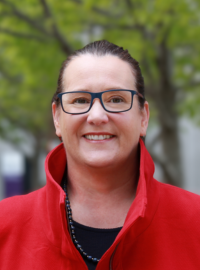-
Top 50 Globally in education and fourth in Australia.
Master of Education
Course information for - 2024 entry
Offered at 1 locations
- Duration
-
120 cp: 1.5 years full-time or equivalent part-time
160 cp: 2 years full-time or equivalent part-time
- CRICOS Code
- 084792A, 099127M
- IELTS
- 7.0 overall score (with a minimum score of 6.0 in all tests)
- Fees (first year)*
- $26848
- Start dates
- July 2024, February 2025, July 2025, February 2026, July 2026
Overview

The Master of Education is for educators and sector professionals who wish to pursue further studies and develop advanced knowledge and expertise in educational practice.
Be part of a vibrant academic, research-led community and deepen your understanding of the latest and most effective pedagogical practices. Learn the latest evidence-based approaches to learning and augment your craft in professional application, rigorous innovation, focused leadership, and research in this area.
Enhance your area of specialisation by choosing from one of eight streams, including: Inclusive Practice; Literacy: Primary and Secondary; Literacy: Teaching Foundational Reading Skills; Literacy: Teaching Fluency, Comprehension and Writing; Research Methods; School Psychology; STEM and Wellbeing.
By embracing life-long learning, teachers and aspiring school leaders will be equipped with advanced practitioner knowledge, skills, and abilities along with a discrete pathway to doctoral research. Students wanting to progress to doctoral study on completion of this course must complete the sequence of Advanced Research methods within their studies.
This advanced education course asks you to reimagine the purposes of education and improve the educational setting you work in. If you are passionate about continual learning and want to advance your career, but do not hold a teaching qualification, you can complete an additional sequence of units to meet this degree's requirements.
Careers
Our graduates have pursued careers as:
- policy advisors
- school leaders
- curriculum advisors
- consultants
Course details
Course structure
To complete the Master of Education, a student must complete 120-160 credit points (cp) comprising:
- Two Foundation Units (2 X 10cp = 20 cp)
- A sequence of four units (4 X 10cp = 40cp) taken from any of the following streams:
- Inclusive Practice
- Literacy: Primary and Secondary Language and Multiliteracies
- Literacy: Teaching Foundational Reading Skills
- Literacy: Teaching Fluency, Comprehension and Writing
- Research Methods
- School Psychology
- STEM
- Wellbeing
- 40 cp from other 600-level units within the above streams
- Capstone Project (20 cp). Students wanting to progress to doctoral study on completion of this course must complete the sequence of Advanced Research methods within their studies.
Students completing the 160 cp Master of Education must complete a further 40 cp from 600-level units within the above streams.
Inclusive Practice
The Inclusive Practice stream aims to empower educators with the tools and knowledge necessary to create inclusive classrooms that value and support the diversity of all students. Through exploring the legal and ethical considerations of inclusive education, participants will gain a deeper understanding of their responsibilities as educators and the impact of their actions on the students they serve. By learning best practices for creating inclusive curriculum, instruction, and assessment, educators will be able to design learning experiences that are accessible and meaningful for all students. This course has a particular focus on addressing the social and emotional needs of all students and developing strategies for creating positive and supportive classroom environments.
Literacy: Primary and Secondary Language and Multiliteracies
This stream is designed for teachers who have particular interest in language and literacy education. Students will have opportunities to extend their knowledge and understanding of current research related to literacy curriculum, pedagogy and assessment and explore ways to use this knowledge to lead and implement best practice literacy education in their school communities. This specialisation considers literacy from a sociocultural perspective and includes strong elements of multiliteracies, multimodality and metalanguage across the curriculum and across the school years, with an emphasis on the middle and later years of primary school and into secondary school.
Literacy: Teaching Foundational Reading Skills
This stream is designed to expand educators’ knowledge of the foundational skills necessary for the development of reading ability at any age. Students will have the opportunity to develop and apply advanced knowledge of the theory and research surrounding early reading instruction, as well as build plan, deliver and evaluate evidence-based reading instruction that meets the needs of all learners. The aim of this stream is to provide educators with the knowledge and skills they to lead their colleagues in developing effective instruction in foundational reading skills for all students.
Literacy: Teaching Fluency, Comprehension and Writing
This stream is designed to enable educators to build their knowledge and practice in how to teach vocabulary, reading fluency, reading comprehension and writing. Students will have the opportunity to develop advanced understanding of the theories and research surrounding vocabulary, reading fluency, reading comprehension, and writing. They will also apply this knowledge to plan, deliver and evaluate evidence-based instruction designed to meet the needs of all learners. The aim of this stream is to provide educators with the necessary knowledge and skills to lead their colleagues in developing effective instruction in text level reading and writing skills for all students.
Research Methods
This stream introduces students to the building blocks required to design and conduct educational research. Students engage with a range of research designs along with their conceptual and theoretical underpinnings while also planning and designing potential research projects. In addition to Research Methods, there are units covering Research for Social Justice, how ethics is interwoven and integral to good research design, and the stages and skills required to conduct a Literature Review.
STEM
This stream affords teachers and educators the opportunity to learn about innovative approaches to STEM education that align with the Australian Curriculum and respective state/territory syllabi. These approaches include: using an integrated STEM approach to foster problem-solving and creativity; teaching STEM through a range of emerging digital technologies and modelling with Big Data; and developing STEM literacy through teaching in the context of socio-scientific issues. Teachers and educators will apply relevant knowledge and skills to develop STEM resources for use in their own educational/professional setting as well as advance their leadership practices in STEM education.
School Psychology
It is increasingly recognised that key ideas in contemporary educational psychology can provide conceptual tools that educators can use to respond to the plethora of issues and challenges they encounter in educational provision. This stream draws on a range of approaches, including the Science of Learning and Development, cognitive psychology, cultural psychology, brain science and school psychology. It applies these to current issues in education including whole-student learning, the management of individual differences, the impact of cultural changes on learning and thinking, future curriculum design, building educational capital and the development of professional knowledge. It will not lead to a teaching qualification or psychology registration.
Wellbeing
This stream is designed to provide educators and allied professionals with opportunities to develop advanced knowledge, understanding and skills in relation to creating learning communities and whole-school approaches that promote the wellbeing of teachers and school students. Students will have opportunities to consider a range of perspectives on wellbeing, professional practices and whole school approaches that foster confidence, resilience, and social and emotional learning. The stream is designed to enhance understanding of teachers and school students needs, approaches to creating enabling, positive learning environments for all within the school, and engaging families and the community to support the wellbeing of teachers and school students.
Course map
Graduate statement
AQF framework
Exit Points
A student who has completed 40 cp from the Schedule of Unit Offerings of the Graduate Certificate in Education may exit with that award.
A student who has completed 80 cp from the Schedule of Unit Offerings of the Graduate Diploma in Education may exit with that award.
Additional course information
Participants with a teaching qualification complete the 120 credit point course. Participants without a teaching qualification complete the 160 credit point course from the Schedule of Unit Offerings outlined in the course handbook on the ACU website.
Entry requirements
View transparency admission information
International applicants
If you’re an international applicant you’ll need the equivalent of an Australian bachelor’s degree.
You’ll also need to comply with the Admission to Coursework Programs Policy, including the English Language Proficiency requirements.
English language requirements
IELTS overall score of 7.0. Individual score of 6.0 in all tests.
Inherent requirement
There are essential components of a course or unit that demonstrate the capabilities, knowledge and skills to achieve the core learning outcomes of that course or unit. You will need to be able to meet these inherent requirements to complete your course.
Learn more about inherent requirements for your course and how they affect you
Pathways
Further study
Graduates of this course may be eligible for entry into further postgraduate coursework degree programs and/or research higher degree, doctoral programs.
Fees
Course costs
- Unit fee: $3356
- Average first year fee: $26848
- Estimate total cost: $40272
The Tuition fees quoted above are for commencing students in the current year who undertake a normal full-time load. The Unit Fee is based on a 10cp unit. Fees are reviewed annually.
Tuition fees for continuing students may increase by up to 3 percent each year for the minimum duration of the course as provided on your electronic Confirmation of Enrolment (eCOE). Students who continue to study beyond the minimum duration will have the relevant annual commencing rate applied to their fees for subsequent study periods.
Payment options
You should be able to concentrate on getting good marks instead of worrying about how you’ll pay your fees. We have a number of options that can help you ease the financial burden, including government assistance, scholarships and income support.
Scholarships
You could be eligible for one of the hundreds of scholarships we award each year to help students from across the university with the cost of studying, accommodation or overseas study opportunities. Some of our scholarships are awarded on the basis of merit, but these aren’t just for the academically gifted; ACU also recognises excellence in community engagement and leadership. We also offer a range of scholarships for those who may be struggling financially or who have faced other barriers to accessing education.
How to apply
International applicants
Direct application
Apply nowDeferment
Yes. See Defer your offer.
Students with a Student Visa will need to complete the program in minimum duration, study at least one subject on-campus each semester and must not undertake more than 33% of the program online.
Staff Profile
Professor Amanda Telford
Course Coordinator, National School of Education
Professor Amanda Telford is a teacher and researcher in health, wellbeing and educational leadership within the National School of Education. She is currently the National Course Coordinator of the Master of Education and has over two decades experience in senior learning and teaching leadership roles as a former secondary teacher and academic across four universities including: Associate Dean (Education) Deputy Head of School (Learning & Teaching), Interim Associate Dean (Partnerships) and Director/course coordinator across three universities. These senior academic leadership positions have enabled her to develop a deep understanding of policy, processes and regulatory requirements of universities and governing bodies. Prof. Telford is a multi- award-winning teacher, researcher and author, she has co-authored over 100 learning and teaching publications including over 50 peer-reviewed journal articles and over 45 textbooks and book chapters used nationally and internationally at secondary and tertiary level. She has collaborated on more than 40 research projects with a learning and teaching, physical activity, physical education and/or wellbeing focus. The CLASS instrument she developed as part of her PhD to assess children's physical activity and sedentary behaviour is used in over 40 countries. Prof. Telford was a Chief Investigator on the ARC funded 'Girls Get Going' study and more recently the NHMRC funded 'TransformUs' project designed to revolutionize the classroom through movement which has already reached over 500 schools.
Dr Paul Kidson
Head of Discipline Postgraduate Education, National School of Education
Dr Paul Kidson is Senior Lecturer in Educational Leadership and the Head of Postgraduate Studies in the National School of Education. He has extensive school leadership and governance experience, including 11 years as a school principal, which informs the highly practical orientation of his academic research. In addition to his academic research and leadership, he is a member of Australian Council for Educational Leaders (NSW) Executive Committee, a Fellow of the Institute for Managers and Leaders, and a Graduate of the Australian Institute for Company Directors. His research adopts holistic and interdisciplinary approaches, drawing on a range of academic disciplines and insights. Through this, he explores how school leaders work effectively within, and critically transform, their complex professional lives. This encompasses broader systems and policies which govern the work of educational leaders, as well as how school leaders develop and sustain their personal experience of leadership. He is part of a large-scale research projects on school leadership, and one of the lead researchers on Australia’s largest and longest running principal well-being research project, the Australian Principal Occupational Health and Well-being Survey.
Shanghai Ranking, Global Ranking of Academic Subjects 2022



